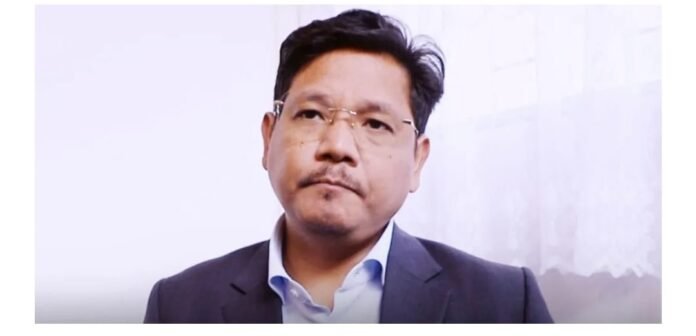Shillong, Meghalaya
In a recent statement, Conrad K Sangma, the President of the National People’s Party and Chief Minister of Meghalaya, expressed his opposition to the proposed Uniform Civil Code (UCC), highlighting concerns over its potential impact on India’s diverse national identity.
Sangma’s remarks came during a public address on Friday, where he voiced his reservations about the UCC, which seeks to establish a uniform set of civil laws across the country, irrespective of religious affiliations. The UCC aims to promote equality and eradicate gender-based disparities prevalent in personal laws concerning marriage, divorce, inheritance, and adoption.
Acknowledging the complexity of the issue, Sangma pointed out that India’s strength lies in its rich cultural and religious diversity. He argued that the implementation of a uniform code could encroach upon the religious and cultural rights of different communities, potentially diluting the unique identity of the nation.
While proponents of the UCC argue that it would foster gender equality and social harmony, critics express concerns that such a code may disregard the distinct practices and customs followed by various religious communities in India. The sensitivity of the matter necessitates a thorough examination of the potential repercussions on the country’s social fabric.
Sangma’s position reflects the ongoing national debate surrounding the UCC. Given India’s vast religious and cultural landscape, it is crucial to strike a delicate balance that respects the rights of individuals while safeguarding the diversity that defines the nation. As the Chief Minister of Meghalaya, Sangma’s viewpoint carries significance, adding another voice to the discussion.
The UCC has been a topic of contention for years, and it continues to spark intense debates among policymakers, scholars, and citizens alike. The potential consequences, both positive and negative, of implementing a uniform code demand a comprehensive exploration of its implications for religious freedom, individual rights, and the social fabric of India.
As public figures and leaders express their opinions on this matter, it is vital for the dialogue to remain open, inclusive, and respectful of diverse viewpoints. The path toward a Uniform Civil Code must navigate the intricate tapestry of India’s pluralistic society, ensuring that the constitutional values of justice, liberty, and equality are upheld while preserving the nation’s cherished identity as a diverse and vibrant tapestry of cultures and beliefs.


